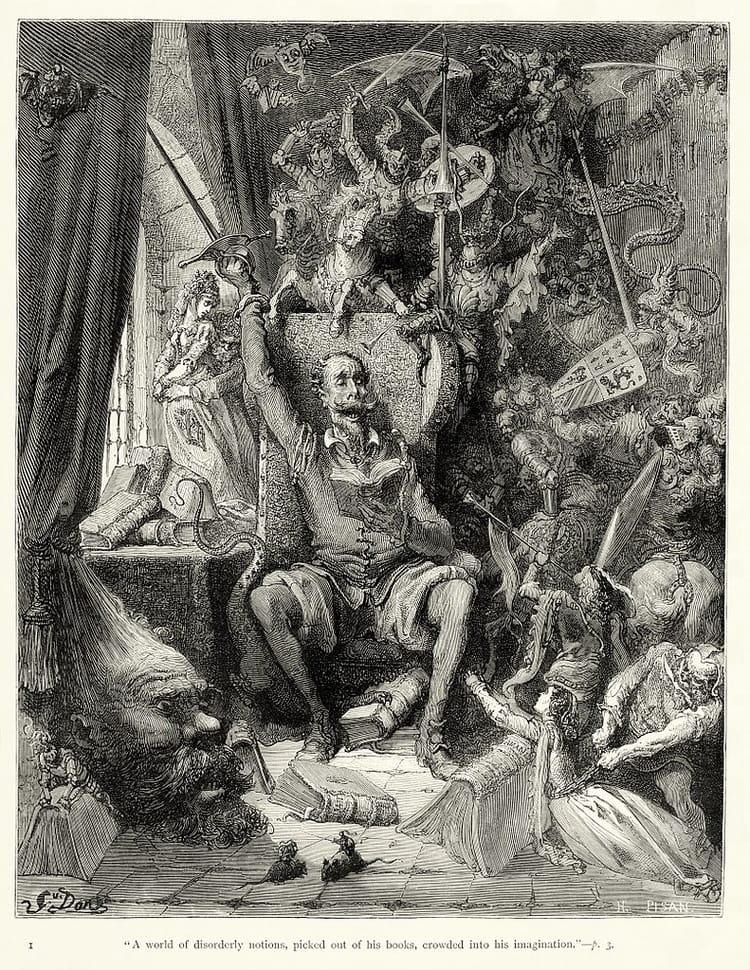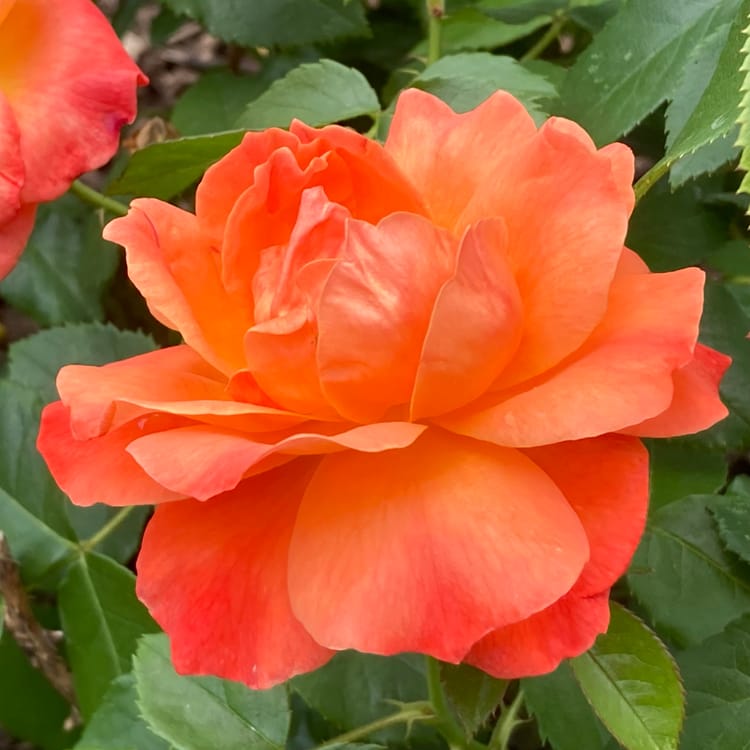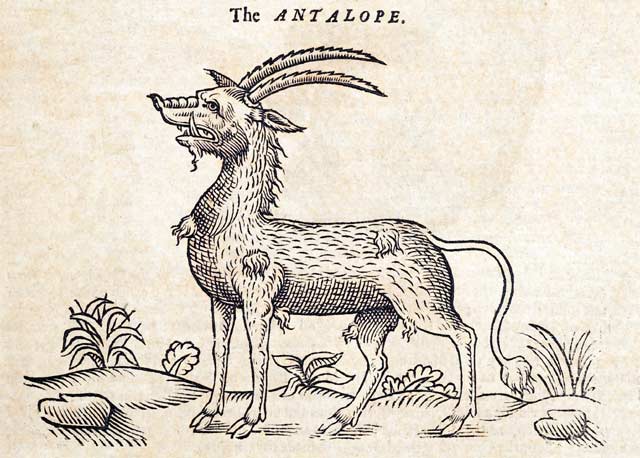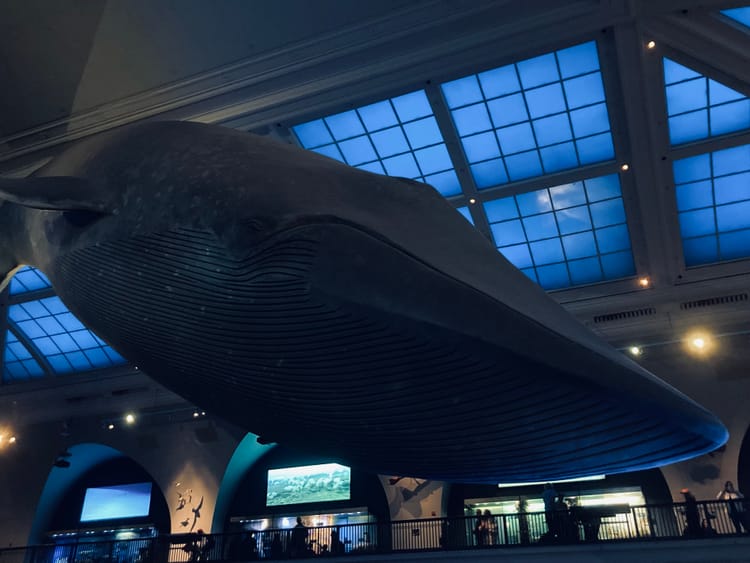one year of romance
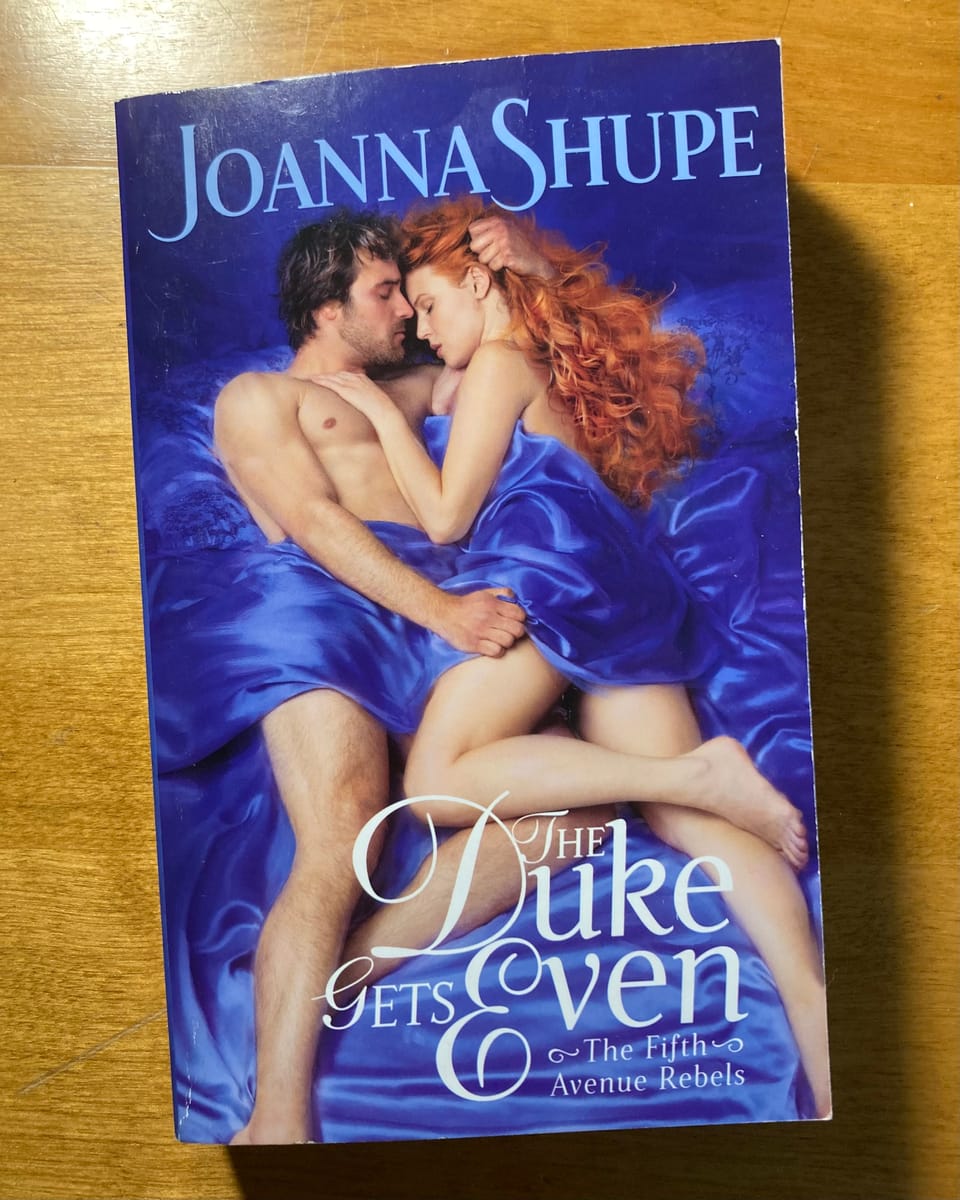
At nineteen minutes before midnight on Tuesday, May 23 last year I sent my professor an email telling him that I had completed my final project for his course, which concluded my final course in library school. The next day, I read the first romance novel I had read since . . . whatever mass market paperback I bought at the mall bookstore to read for a Women’s Studies course on literature? Maybe? It’s also possible that I have invented the memory; I no longer have the syllabus for the course, and my seminar notes are incomprehensible. I definitely read a novel by Danielle Steel in middle school but could not tell you which one. It possibly had a red cover. I don’t really remember. At any rate, on Wednesday, May 24 last year I began The Dead Romantics by Ashley Poston, which I had put on hold at the library months earlier because since listening to an episode of 99% Invisible on clinch covers I had been wanting to read a romance novel. Why was that particular novel the one I chose to read? Again, I don’t remember. I read the book on the subway rides to and from a walk in Central Park, and when I got home I didn’t stop reading the book until I was finished. After that, I started to look at the library for more romance novels to read. In the year since then, I have read more than one hundred.
To be clear, one hundred romance novels in a lifetime (so far) is hardly any at all. I was never a teen who hid Johanna Lindsey paperbacks from judgmental peers and adults; instead, I read a mixture of YA mass market paperbacks, the classics, science fiction and fantasy, and occasional literary fiction. I liked books that involved witchcraft or sorcery or that were set in the past. I also liked books that featured a love story, whether that love story was central (e.g., Jane Eyre) or part of a larger story (e.g., Lloyd Alexander’s Chronicles of Prydain and Westmark trilogy). And then in my first semester of college I read The Romance of the Rose, which (after a verse in which the speaker assures us that what he is about to tell us is true) begins:
A dream vision “in which the whole art of love is contained”? I was a goner. In the semesters that followed, I focused as much as possible on medieval and Renaissance literature. I wanted to understand what centuries-old literature had to say about love, particularly about the relationship between romantic love and spiritual love.
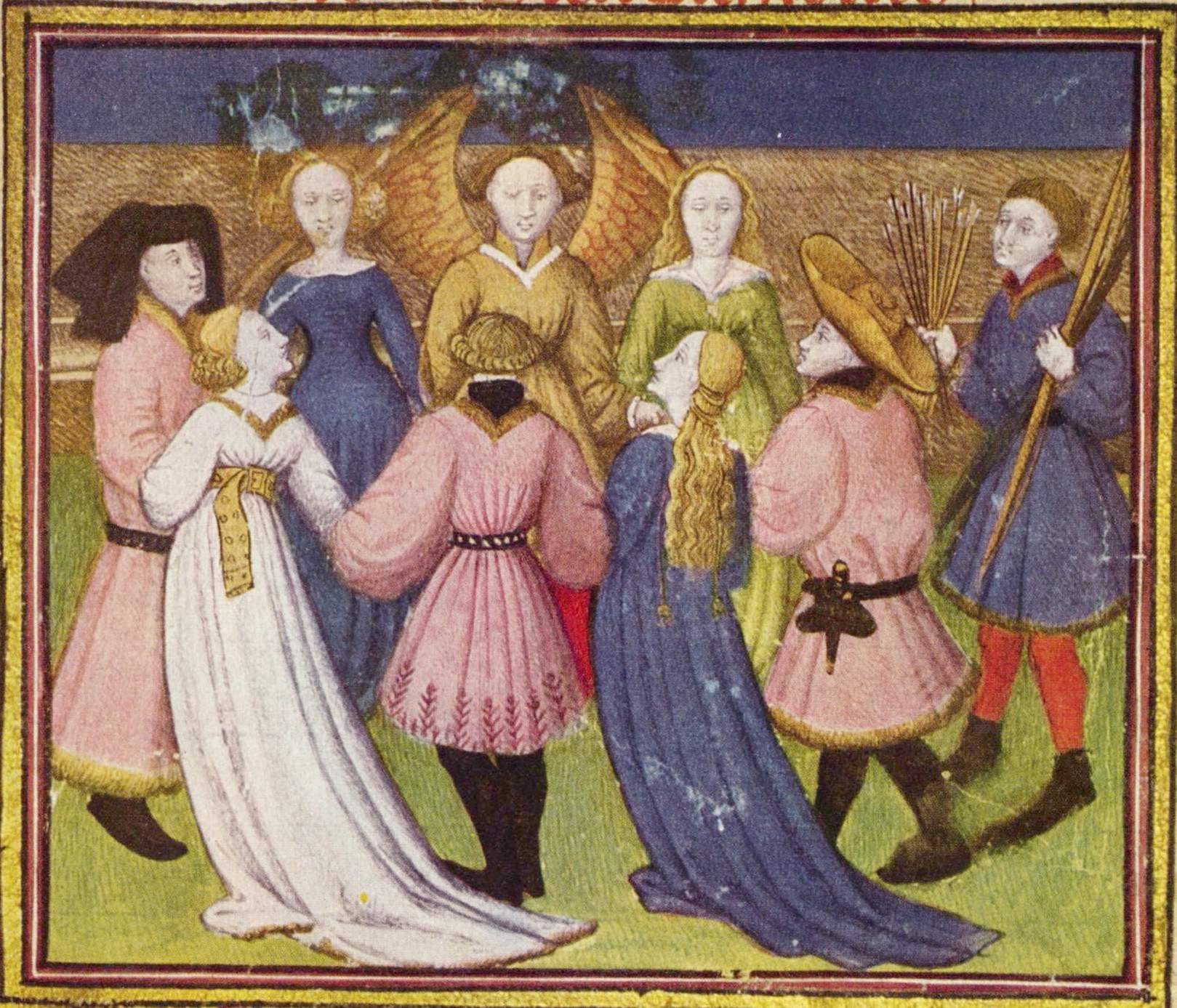
Looking back, I see that what attracted me to this literature was the yearning expressed through the tropes of courtly love and Petrarchism, as in this poem by Sir Thomas Wyatt, one of my favorites:
They flee from me that sometime did me seek
With naked foot, stalking in my chamber.
I have seen them gentle, tame, and meek,
That now are wild and do not remember
That sometime they put themself in danger
To take bread at my hand; and now they range,
Busily seeking with a continual change.
Thanked be fortune it hath been otherwise
Twenty times better; but once in special,
In thin array after a pleasant guise,
When her loose gown from her shoulders did fall,
And she me caught in her arms long and small;
Therewithall sweetly did me kiss
And softly said, “Dear heart, how like you this?”
It was no dream: I lay broad waking.
But all is turned thorough my gentleness
Into a strange fashion of forsaking;
And I have leave to go of her goodness,
And she also, to use newfangleness.
But since that I so kindly am served
I would fain know what she hath deserved.
Women like wild deer fleeing from the speaker! The memory of a dream-like tryst in (apparently) the speaker’s bedroom! The speaker’s hurt and sense of betrayal by a woman whom he clearly still yearns for! I just love this shit.
But of course nearly all of this shit was written by men. Women figure in this literature primarily as objects of pursuit whose subjectivity is expressed only through their resistance of the speaker’s desire. Shakespeare’s heroines are an exception, as is the woman who asks “Dear heart, how like you this?” in the poem above.
All of which is to say that it would have made sense for me to read romance novels then, but I didn’t. I didn’t think they were for me, which at the time might have been true. But now, for various reasons, the time is right for me.
I have expressed both my impatience with definitions and my inclination to see the novel as “a loose, baggy monster,”2 but I have also indicated that the definition of romance novels “matters very much.” In A Natural History of the Romance Novel, Pamela Regis defines the romance novel as “a work of prose fiction that tells the story of the courtship and betrothal of one or more heroines.” This definition is incomplete; it doesn’t account for queer romance or for the fact that in many romantic relationships a happily-ever-after does not necessitate a wedding. The definition does, however, with non-inclusive language, name the three elements essential to a romance novel: the focus on the love story (what Regis calls “courtship”), the necessity of a happy ending (what Regis calls “betrothal”), and the centrality of marginalized people (“heroines” and others). These three elements account for why now is the right time for romance for me. I have always been drawn to love stories. I want to read stories that center the needs and desires of women and marginalized people. And right now, with so many real threats looming and outcomes unknown, I want to read stories that, though they may be filled with angst and yearning, I know will end happily.
When I was seeking a critique of the heteronormativity of Regis’s definition of the romance novel, I found Jonathan A. Allan’s discussion of her work in “Reading the Regis Roundtable: An Outsider’s Perspective,” published as part of a roundtable discussion convened by the Journal of Popular Romance Studies in 2013, on the tenth anniversary of the publication of A Natural History of the Romance Novel. Allan’s focus on the happily-ever-after in particular as problematic surprised me. He writes, “While I agree with Regis that much of the ‘values [of romance] are profoundly bourgeois’3—and they may indeed be read this way—I want to suggest that attached to these values is an insistence upon heteronormativity: specifically, to the heteronormative ideal that Lee Edelman calls ‘reproductive futurism,’” and, concluding, “What readers love about the happily ever after is that it promises a tomorrow,” questions whether this promised tomorrow insists too much on domesticity and a “cruel optimism” that, impossibly, “Our happily ever after will bring an end to our sad stories, restoring what was lost.” There’s so much I want to unpack and think and write about here, and I very much accept Allan’s critique, but all the same, he has pointed to and named what I yearn for so much, even more than love and romance—which is for there to be a tomorrow.
The academics who developed the syllabus of the literature course in the “great books” program in which I participated my freshman year seem to have favored prose translations of works in verse. We also read prose translations of The Inferno and The Purgatorio. The Project Gutenberg has a dual-language version of The Romance of the Rose, in the original Old French with a modern French translation in verse; my English translation in prose is by Charles Dahlberg. ↩
Or, as Lincoln Michel recently wrote: “The novel has, more or less since its inception, been a form that absorbs other forms. It’s protean and peckish. It wants to gobble up all other types of text and grow larger from them. Letters, emails, poems, text messages, corporate documents, you name ’em and novels have included ’em.” Much the same could be said about poetry, however, although I’m not sure that poetry has been absorbing other forms “since its inception.” ↩
Which, yes; is a socialist romance novel possible? This isn’t a rhetorical question. I really do want to know! ↩
